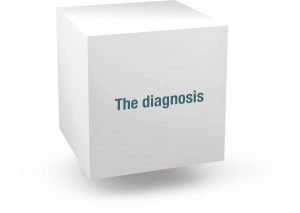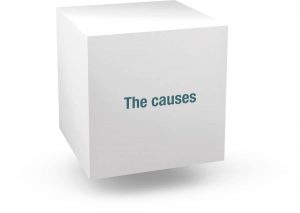Headaches and IgG food allergies
IgG food allergy – a possible trigger of inflammatory processes that cause migraine
Many people suffer from headaches, more or less frequently. There are more than 200 types of headaches; the most common ones are tension headache and migraine. The particular forms of headaches differ in frequency, duration and manifestation or in the type of pain (throbbing, hammering, pressing etc.). Migraine and tension headache are classified as so-called primary headaches; they are seen as a clinical picture of its own that can be treated directly.
The causes of primary headaches are still unclear. A large number of people affected by migraine suspect that foods could trigger the attacks. A delayed IgG food allergy might be such a trigger. The ImuPro concept may thus be a useful approach: It combines an IgG food allergy test and personalised nutritional guidelines. Learn more.
Migraine is a complex neurological picture. People affected usually suffer from long-lasting and intense headaches. Migraine headaches cause throbbing or pulsating pain, usually on only one side of the head. They can interfere with sleep, work and other everyday activities and may occur as often as several times per week or as rarely as once or twice a year. A migraine most often begins at puberty and mostly affects those aged between 35 and 45 years.
The two common forms of migraine are called migraine without aura and with aura. The latter is a type of migraine that has warning signs before the pain begins, called an aura. Symptoms can include seeing flashing lights, blind spots, difficulty focusing on things, balance and co-ordination problems, weakness stiffness and tingling in the neck, shoulders or limbs as well as difficulty speaking. The aura stage of the migraine often lasts from around 15 minutes to an hour. Around 1 in 5 people who experience migraines get aura symptoms.
Common Symptoms of Migraine
- Constipation and diarrhea (sometimes alternating)
- Stomachache
- Abdominal pain
- Bloating
- Cramping
The diagnosis of migraine
There is no diagnostic test for migraine. The diagnosis is based on the patient’s medical history and a clinical and neurological examination. If necessary, tests may be necessary to rule out other diseases or conditions that may be causing the headaches. It is important that the patient documents the attacks: how often, how intense, what kind of pain, attendant symptoms, medications, possible triggers etc.

The causes of migraine
The exact cause of migraine is not fully understood. Migraine has long been observed to run in families so it is thought that there is a genetic component in migraine. Most researchers think that people who get migraines have a more than usually sensitive or ‘hyper-excitable’ brain, so that they are much more sensitive to stimuli that would not affect someone not prone to migraine. The triggers that can provoke the attacks include hormonal fluctuations, stress, a changed sleep-wake rhythm, alcohol and food.

The scientific approach to migraine and IgG
According to recent findings, an inflammatory component is mainly held responsible for migraine. A type III food allergy can cause such inflammatory processes. IgG testing followed by an elimination and provocation diet may thus be a worthwile approach.
Since 2005, scientists have been discussing IgG to foods as a new marker for identifying potential foods as triggers for migraine. In 2010, the first double-blind randomized cross-over trial was published (“Diet restriction in migraine, based on IgG against foods: a clinical double-blind, randomized, cross-over trial” Alpay K et al. Cephalalgia 2010; 30 (7): 829-837). The study, performed with ImuPro, showed evidence that IgG to food could be an effective marker in identifying potential migraine trigger foods. Study participants put on an elimination diet free of IgG positive food had an average of 32% fewer migraine attacks and 29.6% fewer migraine days than patients who consumed a sham diet. Simultaneously, a significant reduction of acute medication was observed. In some patients, migraine disappeared completely.
Another double-blind randomized cross-over study conducted with ImuPro, looked at patients suffering from migraine as well as from IBS at the same time (“IgG-based elimination diet in migraine plus Irritable Bowel Syndrome” Aydinlar E. et al Headache 2013 Mar; 53(3):514-25). The study showed remarkable results – an average reduction of migraine attacks and migraine days by 44% and a reduction of IBS symptoms by 42%. The authors concluded: “Our findings indicate that food elimination based on IgG antibodies in migraine patients who suffer from concomitant IBS may effectively reduce symptoms from both disorders. This could have a positive impact on the quality of life of the patients as well as potential savings to the health-care system.”

